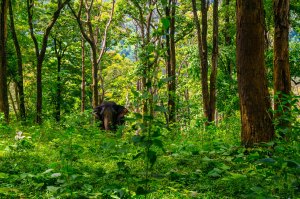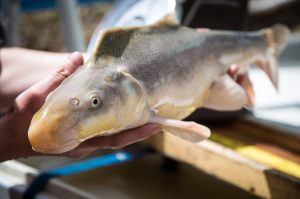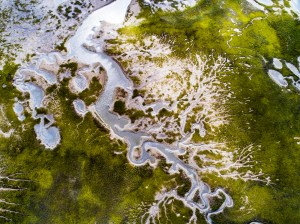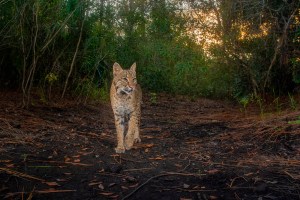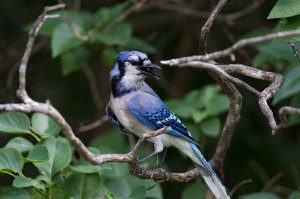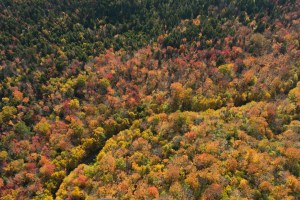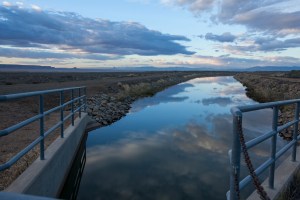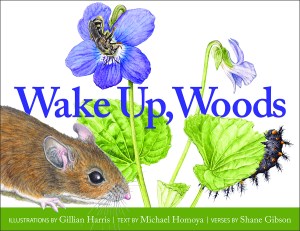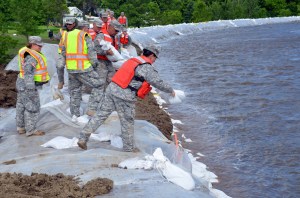Discover stories in Environments
Co-Benefits for Biodiversity & Carbon in Remnant Forests
New science shows that remnant forests with the greatest tree-species richness also store the most carbon, creating a potential win-win for protecting biodiversity and reducing global carbon emissions.
50 Fish, 50 States: Razorback Sucker Nursery
A new project in Utah gives endangered fish a fighting chance.
Tropics Offer Major Natural Climate Solutions Opportunity
New research identifies tropical countries where targeted investment can have the greatest impact on reducing global emissions in the short term.
Recovery: Zombie Mouse Apocalypse
Island birds face a new and horrific threat, but help is on the way.
Biodiverse Forests Capture Carbon Better Than Plantations
New science shows that diverse natural forests with a mix of tree species provide more stable and reliable carbon capture than monoculture plantations in the long run.
Is There a Bobcat in Your Backyard?
Bobcats are moving into our neighborhoods. Here’s why.
Blue Jay: A New Look At a Common Feeder Bird
Does the blue jay get a bad rap as bird feeder bully?
A Walk in the Woods: Reading New England’s Forests
Using clues hidden in the landscape, it’s often possible to figure out what a patch of forest used to look like 100 years ago. Here's how.
The Main Cause of Global Water Scarcity? It’s Us.
New research shows that by 2050, more than 70 percent of watersheds around the world will experience water scarcity driven primarily by human activity, not climate change.
Children’s Book Review: Wake Up, Woods
A review of a beautiful new wildflower book for kids, Wake Up, Woods.
What We Know (And Don’t Know) About Cities & Biodiversity
Scientists don't know much about how human cities affect other species.
Got Floods? Protecting Floodplains Could Be a Cheap Way to Reduce Damages
In many places in the U.S., $1 invested in floodplain protection today can return at least $5 in savings from avoided flood damages in the future.
